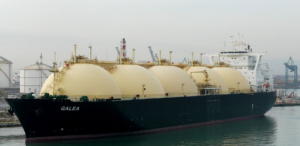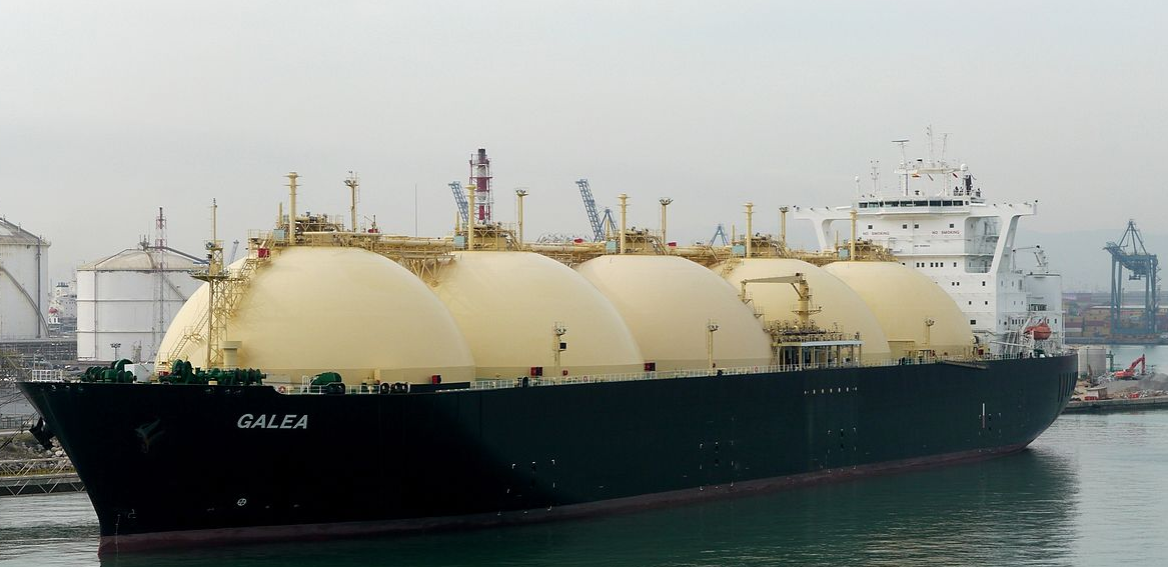 David Callahan is an oil and gas man through and through. With thirty years’ experience in the energy industry, Callahan is currently president of the Marcellus Shale Coalition (MSC).
David Callahan is an oil and gas man through and through. With thirty years’ experience in the energy industry, Callahan is currently president of the Marcellus Shale Coalition (MSC).
One of the leading trade associations promoting fracking in the Marcellus basin, which is primarily in Pennsylvania and West Virginia, MSC is focused on promoting shale development. The more the better. The coalition sees anyone who stands in the way of LNG expansion as an “extremist”.
Like many in the American oil and gas sector, Callahan sees Putin’s war in Ukraine as a flagrant opportunity to sell more gas. And lots of it. He has been writing syndicated opinion pieces calling on the U.S. to “unleash American energy’s strength and security”. The use of the word “unleash” here is interesting, symbolising a huge resource that is just ready to be tapped. Ironically it is often a word used in war too.
Writing in one journal, Callahan said: “As the world’s largest producer and exporter of natural gas, America is uniquely positioned to do even more to support our allies and their efforts to counter Russia’s hostility. We are fortunate to have such abundant resources that can meet domestic consumer demand and aid European allies.”
The Coalition believes that the U.S. should not only supply Europe, but indeed the whole world. Everyone should have U.S. shale gas.
He of course is not alone in the view that American LNG exports should be ramped up. The leading oil and gas lobby group in the U.S., the American Petroleum Institute (API), has even gone so far as to suggest that the reason why Russia invaded Ukraine is that Biden restricted domestic oil and gas production in the first year of his presidency. More drilling is the answer, it seems, to everything.
But they’re not the only ones. The world’s biggest fossil fuel financiers are salivating at the opportunity too. Jamie Dimon, the powerful CEO of JP Morgan, just this week told shareholders in his annual letter “While the United States is fairly energy independent, we need to increase our energy production and get more gas (in the form of liquefied natural gas) to Europe immediately.”
Dimon added: “Our work with all of our allies should include urging them to both increase their production and deliver some of it to Europe. To do this, we also need immediate approval for additional oil leases and gas pipelines, as well as permits for green energy projects; i.e., solar and wind.”
Whilst Dimon did, rightly, call on solar and wind too, it is ironic that his comments came the day of the latest UN’s Intergovernmental Panel on Climate Change (IPCC) report. This was the third and final comprehensive review of the latest climate science, compiled by thousands of leading scientists. The world’s scientists were effectively screaming that we have to stop burning fossil fuels now. As OCI tweeted in response:
? THREAD ALERT: (1/11)
@IPCC_CH has released its latest #ClimateReport. The bottom line: the world must begin an equitable phase out of oil, gas, and coal NOW. We will not limit global warming to 1.5C without immediate and ambitious action. https://t.co/gr0Ho7KUGB— Oil Change International (@PriceofOil) April 4, 2022
The UN Secretary General, António Guterres said at the launch of the IPCC report: “Inflation is rising, and the war in Ukraine is causing food and energy prices to skyrocket. But increasing fossil fuel production will only make matters worse.”
So we know that American LNG is not the long term answer for Europe, even if Germany is contemplating building LNG terminals in light of the Ukraine war. Although a partnership between the U.S. and European Union could see U.S. LNG exports to Europe grow by 15 billion cubic meters this year, U.S. LNG is not the long-term solution to Europe’s energy needs.
And that is for a simple reason. The IPCC warned that carbon emissions need to peak within three years, and fall rapidly after that if we want any chance of having a liveable climate. Any new LNG infrastructure would take at least that long to build and would have an expected economic life of decades.
So that is the fundamental flaw with the LNG expansion proposition. It will take years to build terminals which are designed to last decades, but we don’t have decades left in the climate fight. We have three years to peak emissions.
This has not gone unnoticed. As the New York Times outlined earlier in the week: “Developers, though, will be wary of whether the current boom in Europe might fade well before the expiration of the new L.N.G. projects, which are generally expected to operate for 20 years or more. And European leaders insist they still view gas as a temporary fix before renewable energy sources like wind and solar and hydrogen take over.”
Experts are warning that Europe should not build new LNG terminals either. As a recent report by E3G pointed out: “Security of supply and reduction of Russian gas dependence does not require the construction of new EU gas import infrastructure such as LNG terminals”.
Building LNG terminals is the wrong solution to the problem of weaning Europe off Russian gas. As E3G noted: “Make investments in energy efficiency an energy security priority and increase the ambition of and fast track key renewable energy and efficiency policy.”
We knew the solutions long before this bloody, brutal war: renewables, energy efficiency, batteries and EVs, together with new ways of organising and democratising our energy supply. They were the solutions then, they are the solutions now.

